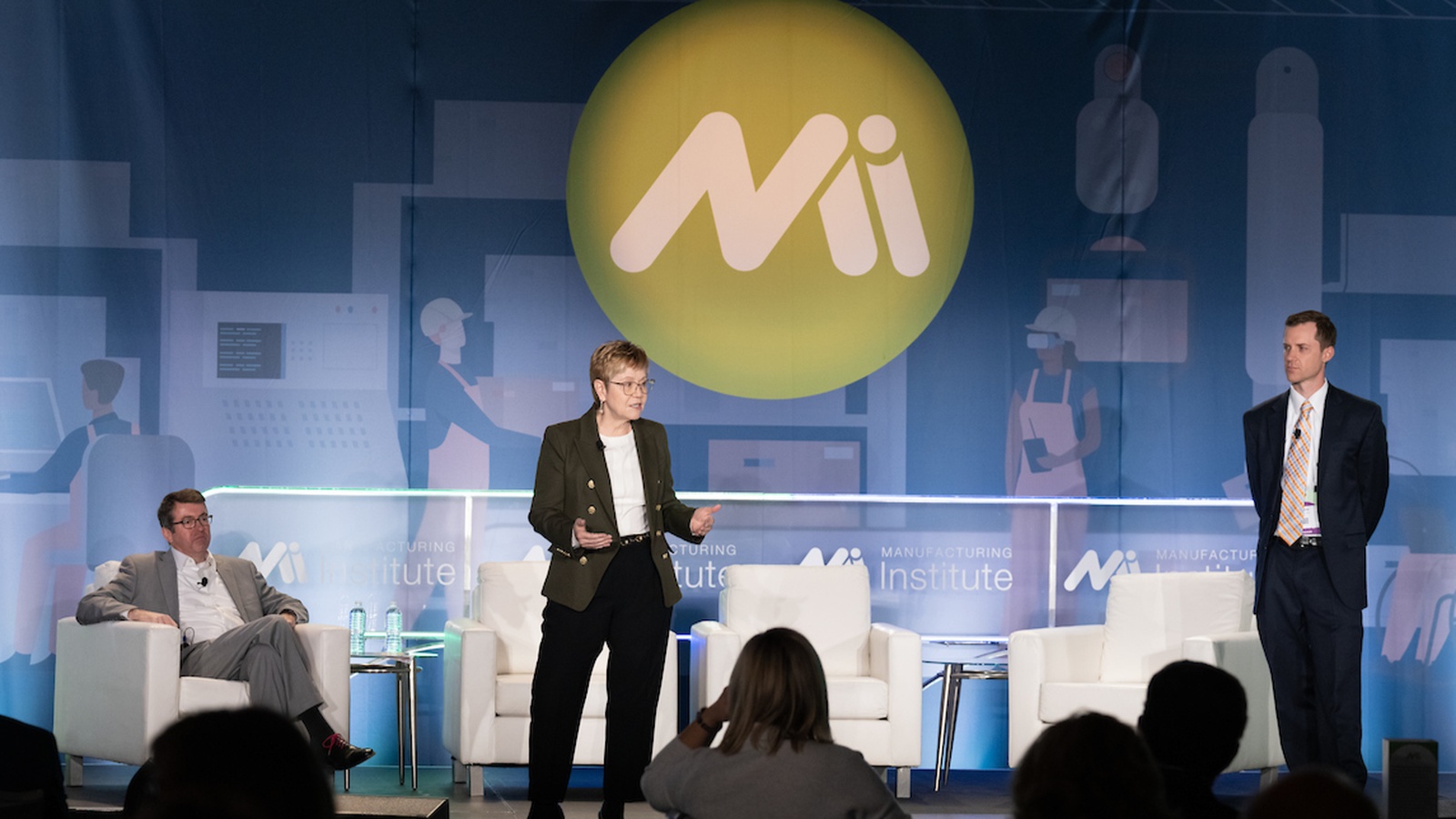How Manufacturers Can Leverage Adaptive Skills

The skills gap is one of the biggest challenges facing manufacturers today—but what if there was a way to overcome it and fill jobs more effectively and easily? In fact, such a method exists, and it’s called “adaptive skills” development.
Timely topic: The Manufacturing Institute’s inaugural Workforce Summit in Cincinnati, Ohio, covered this topic last month, in a session led by two EY partners. Here’s what they had to say.
- “What are adaptive skills? It’s exactly as you would expect: they’re skills that help an individual learn and expand their capabilities to meet an ever-changing job function, business market [or] home environment,” EY Americas Business Consulting Leader Lisa Caldwell told the audience.
- Developing and leveraging these skills, which include communication and problem solving, helps companies retain a broader workforce, according to a recent joint EY–MI study that built on earlier research from EY and Oxford Said Business School, Caldwell said.
- This is particularly important today, as the U.S. workforce could have a shortage of 2.1 million manufacturing jobs by 2030 if the skills gap is not addressed, according to a joint Deloitte–MI study cited by Caldwell.
Manufacturing-specific skills: In their study, the EY and MI identified three specific adaptive skills “that were highly relevant to the manufacturing industry,” said EY People Advisory Services Partner Stephen Fuller during the session.
- Root-cause analysis: The ability “to understand what the root of a problem is, what the data needed to make a decision is,” as Fuller put it.
- Systems thinking: It’s “all about … asking questions. ‘Who does this? Where does this go? How does this work? When does XYZ occur?’”
- Creative reasoning: The key here is the ability to consider problems from unusual perspectives, said Fuller.
Lessons learned: Caldwell shared some of the major study takeaways that manufacturers can use.
- Create an adaptive culture: “[B]uild a culture that … empowers, a culture that wants collaboration, a culture that encourages and recognizes people who speak up, who bring forward ideas.”
- Parlay adaptive skills into new career paths: “If we build career paths and we define the skills and the capabilities that are needed for those career paths, focusing on adaptive skills as much as the technical skills, I think we have something that could really attract people to want to not only come but stay in manufacturing.”
- Invest in individualized learning: This can include rotating jobs, mentoring, shadowing programs and leveraging technology to create experiential learning for employees, said Caldwell.
- Add adaptive skills to your hiring strategy: “It’s really important that we have classroom training and virtual training that isn’t just slides up on a screen, but is very immersive for people and lets them actually feel and experience … what we’re trying to teach them.”
The last word: Ultimately, closing the skills gap “all starts with skills and infusing adaptive skills into your role profiles,” Fuller said. “[Use] it as a way to connect people to learning experiences that are meaningful for them. That’s ultimately the formula for success.”
